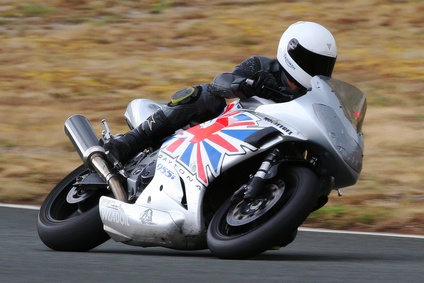
Cars and motorcycles tend to fill two different but related niches in the automotive world. Most cars are do-it-all appliances that can haul cargo and people alike in relative comfort, regardless of weather conditions. Motorcycles, on the other hand, can function as basic transportation but are usually ridden only by those who have a true appreciation for freedom, light weight and eye-watering performance.
Although some people do use motorcycles as their sole means of transportation, those people generally either loathe cars or can't afford one. Using your bike as a daily driver seems like a good idea until you have to haul garbage to your local recycling center in the rain, then pick up a pizza for dinner. And don't kid yourself that carrying around an all-weather suit will make rain and snow any more pleasant; you're only trading rainwater and ice for sweat and frozen fingers. Advantage in versatility goes to cars.
You know that cars and bikes are in different leagues when even a gas-hog of a bike gets 45 mpg. Bikes have a number of advantages over cars where fuel economy is concerned, prime amongst them being low weight. A 3,500-lb. car requires about 62 horsepower to maintain 60 mph; a 600-lb. bike (with rider) can maintain the same speed with a paltry 10 horsepower. Horsepower required equals fuel used, so advantage in fuel economy goes to the bike.
All else being equal, a smaller vehicle will cost less to buy simply because it costs less to produce. Bikes don't have interiors, airbags or four-wheel independent suspensions. Although prices can vary greatly depending on the bike and the car, it's worth considering that the world's most expensive car (the Bugatti Veyron) costs about $1.2 million in the U.S. (as of June 2010); the world's most expensive bike (the MV-Augusta F4CC) costs a relatively cheap $150,000. Advantage: bikes, by about ten-to-one.
A lot of things come into play when discussing operation costs, not least of which being insurance. Although you might be getting a good deal insuring your Toyota Camry for $80 a month, most states allow bike riders to go without insurance altogether provided that they wear a helmet. Those insurance costs can add up to quite a bit at the end of the year, especially if you're paying to insure a sports-car to scratch the occasional go-fast itch. This is a big part of the reason that bikes are so cheap to insure; they're often second or even third vehicles that rarely see any serious miles.
On average, bikes crush cars hands down. On the low end of the spectrum, a 34 horsepower Buell Blast (a beginner's bike, and one of the slowest on the market) does 0 to 60 mph in 7.1 seconds with a quarter mile time of 15.75 seconds, which is about the same as a Ford Focus SVT. A Suzuki V-Strom (a slow-to-mid-level bike) does 0 to 60 in about 5.6 seconds, in the range of a Porsche Boxter S. The Leblanc Mirabeau supercar (from little known Swedish manufacturer Leblanc) is 2010's quarter-mile champion at 10.3 seconds, but is about 0.5 seconds slower than a garden-variety Suzuki GSX 1300R.